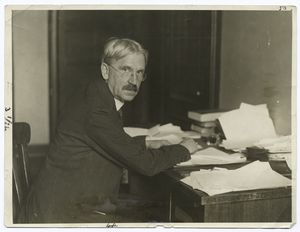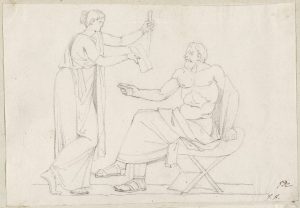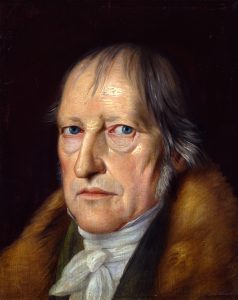1 Chapter 1 Logos: Critical Thinking
wilburh
1.1 What is Critical Thinking?
With respect to critical thinking, it seems that everyone uses this phrase. One might fear that this is becoming a buzz-word (i.e., a word or phrase you use because it’s popular or enticing in some way). Ultimately, this means that we may be using the phrase without a clear sense of what we even mean by it. So, here we are going to think about what this phrase might mean and look at some examples. As a former colleague of mine, Henry Imler explains:
By critical thinking, we refer to thinking that is recursive in nature. Any time we encounter new information or new ideas, we double back and rethink our prior conclusions on the subject to see if any other conclusions are better suited. Critical thinking can be contrasted with Authoritarian thinking. This type of thinking seeks to preserve the original conclusion. Here, thinking and conclusions are policed, as to question the system is to threaten the system. And threats to the system demand a defensive response. Critical thinking is short-circuited in authoritarian systems so that the conclusions are conserved instead of being open for revision.[1]
Imler’s definition is related to what prominent American philosopher John Dewey referred to as reflective thinking.In “What Critical Thinking Is,” Fisher explains It is generally agreed that the modern critical thinking tradition derives from the work of the American philosopher, psychologist, and educator John Dewey (1859–1952). Dewey called it “reflective thinking” and explained it as an active and persistent evaluation of a claim (e.g., a belief or form of knowledge) in terms of how well the claim is supported and the claim’s connection to further logical conclusions. Fisher claims that It is worth unpacking this definition because its elements have remained part of the core in other conceptions of what critical thinking is. Characteristically then, critical thinking involves “actively” subjecting the ideas we encounter to critical scrutiny, as distinct from just passively accepting them. For Dewey, and for everyone who has worked in this tradition subsequently, critical thinking is essentially an “active” process, one in which we think things through for ourselves, raise questions ourselves, find relevant information ourselves, etc., rather than learning in a largely passive way from someone else.[1]

1.2 What is the practical importance of critical thinking?
I think critical thinking is the single most important skill you can develop. It is a skill that will help you in every aspect of your life. In close but second place is communication. In my view, communication skills follow as a natural result of critical thinking because you are attempting to think through and articulate stronger and rationally justified views. At the risk of sounding cliche, education isn’t about instilling content; it is about learning how to think. In Brian Kim’s text, “Critical Thinking,” he highlights specific skills that are associated with critical thinking.[2]
Critical thinking is a domain-general thinking skill. The ability to think clearly and rationally is important whatever we choose to do. If you work in education, research, finance, management, or the legal profession, then critical thinking is obviously important. But critical thinking skills are not restricted to a particular subject area. Being able to think well and solve problems systematically is an asset for any career.
Critical thinking is very important in the new knowledge economy. The global knowledge economy is driven by information and technology. One must be able to deal with changes quickly and effectively. The new economy places increasing demands on flexible intellectual skills and the ability to analyze information and integrate diverse sources of knowledge in solving problems. Good critical thinking promotes such thinking skills and is very important in the fast-changing workplace.
Critical thinking enhances language and presentation skills. Thinking clearly and systematically can improve the way we express our ideas. In learning how to analyze the logical structure of texts, critical thinking also improves comprehension abilities.
Critical thinking promotes creativity. To come up with a creative solution to a problem involves not just having new ideas. It must also be the case that the new ideas being generated are useful and relevant to the task at hand. Critical thinking plays a crucial role in evaluating new ideas, selecting the best ones, and modifying them if necessary.
Critical thinking is crucial for self-reflection. To live a meaningful life and to structure our lives accordingly, we need to justify and reflect on our values and decisions. Critical thinking provides the tools for this process of self-reflection and self-evaluation.
Good critical thinking is the foundation of science and democracy. Science requires the critical use of reason in experimentation and theory confirmation. The proper functioning of a liberal democracy requires citizens who can think critically about social issues to inform their judgments about proper governance and to overcome biases and prejudice.
Critical thinking is a metacognitive skill. What this means is that it is a higher-level cognitive skill that involves thinking about thinking. We have to be aware of the good principles of reasoning and be reflective about our own reasoning. In addition, we often need to make a conscious effort to improve ourselves, avoid biases, and maintain objectivity. This is notoriously hard to do. We are all able to think but to think well often requires a long period of training. The mastery of critical thinking is like the mastery of many other skills.
1.3 What are common characteristics of critical thinkers?
Fisher highlights common characteristics that critical thinkers typically have.[3] A condition for being reflective or recursive is to be open and practice intellectual humility. If we come to a point where we think we have a handle on what is True, we are no longer open to consider, discuss, or accept information that might challenge our Truth. One becomes closed off and rejects everything that is different or strange–out of sync with one’s own Truth. To be open and recursive entails a sense of thinking about your beliefs in a critical and reflective way, so that you have a chance to either strengthen your belief system or revise it if needed. You might notice the connection between critical thinking and the scientific method. Dewey was aware of this connection. Scientific hypotheses, as well as our hypotheses about justice, reality, and religion, ought to be reflective, recursive, and subject to revision as new data comes in, as new technologies are developed, and as we experience the details of our lives (Fisher).
Fisher characterizes the critical thinker as one who takes time to weigh matters carefully—to “persist” and be “careful”—by contrast with the kind of unreflective thinking in which we all engage sometimes, for example, when we “jump” to a conclusion or make a “snap” decision. Of course, we have to do this sometimes because we need to decide quickly or the issue is not important enough to warrant careful thought, but often, we do it when we ought to stop and think—when we ought to “persist” a bit (Fisher).
Returning to Dewey’s definition, Fisher points out the most important thing about his definition is what Dewey says about the “grounds which support” a belief and the “further conclusions to which it tends”. The critical thinking tradition attaches huge importance to reasoning, to giving reasons and to evaluating reasoning as well as possible, and to valuing this focus. Characteristically, the critical thinker tries to reason skillfully in thinking about issues, by contrast with those who are unreasonable, unreflective, biased or dogmatic. There is more to be said about the components of Dewey’s definition, but skillful reasoning is a key element (Fisher).
1.4 Critical Thinking in and outside the classroom
In your philosophy classes, your own ideas and beliefs will very likely be challenged. This does not mean that you will be asked to abandon your beliefs, but it does mean that you might be asked to defend them. Additionally, your mind will probably be twisted and turned about, which can be an uncomfortable experience. Yet, if at all possible, you should cherish these experiences and allow them to help you grow as a thinker. To be challenged and perplexed is difficult; however, it is worthwhile because it compels deeper thinking and more significant levels of understanding. In turn, thinking itself can transform us not only in thought but in our beliefs and our actions. Hannah Arendt, a social and political philosopher who came to the United States in exile during WWII, relates the transformative elements of philosophical thinking to Socrates. She writes:
Socrates…who is commonly said to have believed in the teachability of virtue, seems to have held that talking and thinking about piety, justice, courage, and the rest were liable to make men more pious, more just, more courageous, even though they were not given definitions or “values” to direct their further conduct.[4]

Thinking and communication are transformative insofar as these activities have the potential to alter our perspectives and, thus, change our behavior. In fact, Arendt connects the ability to think critically and reflectively to morality. As she notes above, morality does not have to give a predetermined set of rules to affect our behavior. Instead, morality can also be related to the open and sometimes perplexing conversations we have with others (and ourselves) about moral issues and moral character traits. Theodor W. Adorno, another philosopher who came to the United States in exile during WWII, argues that autonomous thinking (i.e. thinking for oneself) is crucial if we want to prevent the occurrence of another event like Auschwitz, a concentration camp where over 1 million individuals died during the Holocaust.[5] To think autonomously entails reflective and critical thinking—a type of thinking rooted in philosophical activity and a type of thinking that questions and challenges social norms and the status quo. In this sense, thinking is critical of what is, allowing us to think beyond what is and to think about what ought to be or what ought not be. This is one of the transformative elements of philosophical activity and one that is useful in promoting justice and ethical living.
With respect to the meaning of education, the German philosopher Hegel uses the term bildung, which means education or upbringing, to indicate the differences between the traditional type of education that focuses on facts and memorization and education as transformative. Allen Wood explains how Hegel uses the term bildung: it is “a process of self-transformation and an acquisition of the power to grasp and articulate the reasons for what one believes or knows.”[6]

If we think back through all of our years of schooling, particularly those subject matters that involve the teacher passing on information that is to be memorized and repeated, most of us would be hard-pressed to recall anything substantial. However, if the focus of education is on how to think and the development of skills, including the ability to focus on a concept or idea, analyzing, synthesizing, and communicating ideas and problems, most of us will use those skills whether we are in the field of philosophy, politics, engineering, business, nursing, computer programming, or education. In this sense, philosophy can help you develop a strong foundational skill set that will be marketable for your individual paths. While philosophy is not the only subject that will foster these skills, its method is one that heavily focuses on the types of activities that will help you develop such skills.
1.5 Critical Thinking self-inventory
Kim uses the California Critical Thinking Disposition Inventory, which is a psychological test that is used to measure whether people are disposed to think critically. It measures the seven different thinking habits listed below, and it is useful to ask ourselves to what extent they describe the way we think.
- Truth-Seeking—Do you try to understand how things really are? Are you interested in finding out the truth?
- Open-Mindedness—How receptive are you to new ideas, even when you do not intuitively agree with them? Do you give new concepts a fair hearing?
- Analyticity—Do you try to understand the reasons behind things? Do you act impulsively or do you evaluate the pros and cons of your decisions?
- Systematicity—Are you systematic in your thinking? Do you break down a complex problem into parts?
- Confidence in Reasoning—Do you always defer to other people? How confident are you in your own judgment? Do you have reasons for your confidence? Do you have a way to evaluate your own thinking?
- Inquisitiveness—Are you curious about unfamiliar topics and resolving complicated problems? Will you chase down an answer until you find it?
- Maturity of Judgment—Do you jump to conclusions? Do you try to see things from different perspectives? Do you take other people’s experiences into account?
Psychologists have discovered over the years that human reasoning can be easily affected by a variety of cognitive biases. For example, people tend to be over-confident of their abilities and focus too much on evidence that supports their pre-existing opinions. We should be alert to these biases in our attitudes towards our own thinking (Kim).
Chapter 1 Crossword
Chapter 1 Quiz
- Henry Imler, ed., Phronesis An Ethics Primer with Readings, (2018). 7-8. ↵
- Kim, Brian. Critical Thinking. Open Library, Oklahoma State University. Accessed November 14, 2024. https://open.library.okstate.edu/criticalthinking/chapter/unknown-2/. ↵
- Fisher, Alec. Critical Thinking: An Introduction. Ecampus Ontario. Accessed November 14, 2024. https://ecampusontario.pressbooks.pub/criticalthinking1234/chapter/unknown-2/. ↵
- Arendt, Hannah, “Thinking and Moral Considerations,” Social Research, 38:3 (1971: Autumn): 431. ↵
- Theodor W. Adorno, “Education After Auschwitz,” in Can One Live After Auschwitz, ed. by Rolf Tiedemann, trans. By Rodney Livingstone (Stanford: Stanford University Press, 2003): 23. ↵
- Allen W. Wood, “Hegel on Education,” in Philosophers on Education: New Historical Perspectives, ed. Amelie O. Rorty (London: Routledge 1998): 302. ↵
INSERT DEFINITION
